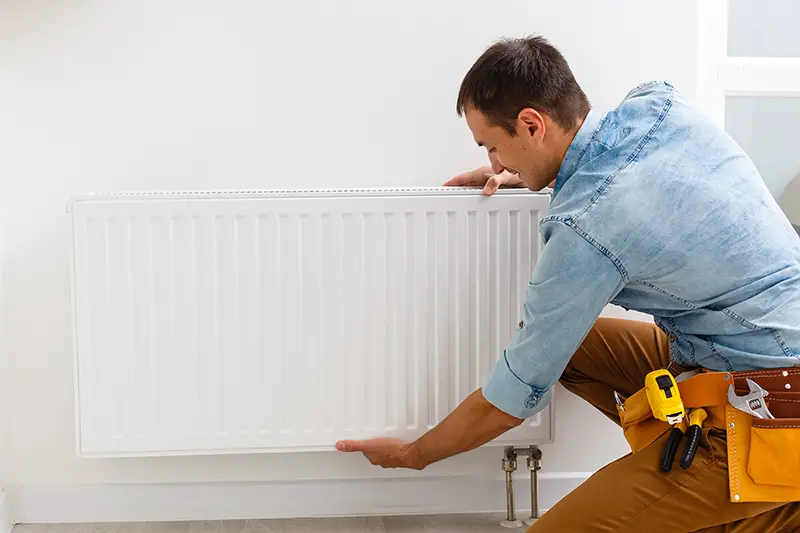Click here to get this post in PDF
Heating your home or office is integral to keeping comfortable during the winter months. There are a variety of heating systems available, but one of the most popular is central heating. This blog post will discuss everything you need to know about central heating: what it is, how it works, and the benefits it offers. We will also provide tips on maintaining your central heating system and keeping your home and office warm all winter long.
What is Central Heating
Central heating is a type of heating system that uses one central source to provide heat for an entire home or building. The most common type of central heating system is a furnace, which heats air and then distributes it through a ductwork system. Central heating systems can also use boilers to heat water, which is then circulated through radiators. Regardless of the type of central heating system you have, the basic principle is the same: one central source provides heat for your entire building.
Benefits of Central Heating
There are several benefits to using a central heating system:
Use Less Energy
It is more efficient than other types of heating because it only has to generate heat once and then distribute it throughout your property. This means that you will use less energy overall and save money on your heating bill.
No Cold Spots
Central heating is more evenly distributed than other types of heating, so you will not have hot and cold spots in your building. In addition, it is easier to maintain a comfortable temperature with central heating because you can control the temperature from one central location.
Wet and Dry Systems
There are two types of central heating systems: wet and dry. Wet systems have a boiler that heats up water and circulates it around the building through pipes. Dry systems have a furnace that heats up the air and circulates it around the property through ducts.
Fuel Source Options
The most important thing to consider when choosing a central heating system is your fuel source. The most common fuel sources are natural gas, oil, and electricity. However, each has its own benefits and drawbacks, so be sure to do your research before deciding.
Boiler or Furnace?
Once you’ve decided on a fuel source, the next step is to choose a boiler or furnace. Again, there are many different types and models on the market, so it’s essential to find one that suits your needs and budget.
Rather Call the Professionals
Installing central heating can be a big job, so it’s vital to get professional help if you’re not confident doing it yourself. A qualified installer will be able to advise you on the best system for your home or place of work and make sure it’s installed correctly.
Tips for Maintaining Your System
No matter which type of system you choose, there are some basic maintenance tasks that you should perform on a regular basis to ensure that your system runs efficiently and lasts for many years. One important task is to regularly check your heating oil tanks and make sure that it is filled to the proper level. If your tank runs dry, it could damage your furnace or boiler. You should also have your ductwork inspected and cleaned periodically to remove any dust or debris that could impede airflow. Finally, it’s a good idea to have a professional service your system once a year to ensure that everything is running smoothly.
By following these simple tips, you can keep your central heating system running efficiently for many years to come. And when the weather outside is frightful, you’ll be glad you have a cozy warm home to retreat to. So don’t wait until the first snowfall to start thinking about your heating system – get started on some essential maintenance today!
You may also like:


